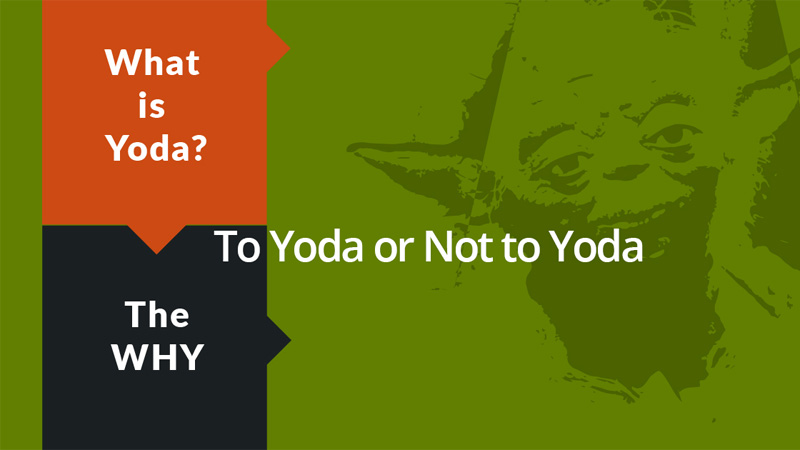Christian Harms: What Are Yoda Conditions?
In the exploration of Christianity’s impact on society, one may wonder: Christian harms what are Yoda conditions? This inquiry invites a deep examination of the potential negative consequences that can arise from certain interpretations and practices within Christianity, while also seeking wisdom in navigating faith in a manner that promotes ethical application. By utilizing the metaphorical lens of the Yoda Conditions, we can critically analyze the duality of faith — its capacity for both good and harm — and seek a path toward a more balanced and compassionate understanding of religious practice.
The Historical Context of Christian Intolerance

United Coders Christianity has long been intertwined with societal norms and historical events, shaping not only individual beliefs but entire communities. While the core messages of love and compassion resonate deeply, the historical record illustrates how certain interpretations have been used to justify intolerance and discrimination.
Spiritual Justifications for Persecution
Throughout history, various Christian sects have claimed divine authority to discriminate against others, often based on doctrinal beliefs about morality and salvation. The idea of being a “chosen people” has historically fueled narratives that position Christians as superior, leading to the marginalization of those outside their faith.
The Crusades, for example, were framed as holy wars meant to reclaim the Holy Land, yet they resulted in significant loss of life and enduring animosity between cultures. The visceral hatred and violence committed in the name of God during these times raises profound questions about the ethics of interpreting faith through a lens of fear and aggression.
The Role of Fear in Religious Intolerance
The influence of fear on religious belief cannot be understated. As Yoda wisely stated, “Fear is the path to the dark side.” When individuals or communities operate from a place of fear regarding their beliefs or existence, it can lead to anger, division, and even hate toward those perceived as different.
Christian history shows instances where fear-based narratives have justified acts of violence and discrimination. For example, during the Spanish Inquisition, the persecution of non-believers was rooted in a fear of heresy and an unwavering commitment to maintaining religious purity. Such actions not only harmed those targeted but also created a culture of fear within the broader community, prompting introspection about the true teachings of love and acceptance inherent in Christianity.
Addressing Intolerance Through Self-Reflection
To counteract the historical legacy of intolerance, contemporary Christians must engage in self-reflection. They should ask themselves whether their beliefs inadvertently contribute to discrimination or prejudice. By examining the foundations of their faith practices, believers can reject fear-based interpretations while embracing a more inclusive and compassionate worldview.
Ultimately, fostering environments where diverse beliefs are respected can lead to healthier dialogues and mutual understanding among faith communities. It requires a commitment to acknowledging past mistakes while moving forward with a focus on love, empathy, and understanding as central tenets of Christian practice.
Gender Dynamics: Oppression Within Christianity
The relationship between Christianity and gender dynamics is complex, with certain interpretations manifesting as systemic oppression of women and LGBTQ+ individuals. While many Christian communities strive for equality, conservative interpretations often reinforce traditional gender roles and restrictive norms regarding sexuality.
Biblical Interpretations That Subjugate Women
Certain biblical passages have been weaponized to promote male dominance, resulting in a patriarchal structure within various Christian denominations. From the notion of women being created as companions for men to specific directives that discourage female leadership, these interpretations have led to widespread marginalization of women in both religious and social spheres.
For instance, some churches prohibit women from assuming leadership roles under the belief that their primary responsibility lies within the household. This narrow view not only limits women’s personal and professional opportunities but also undermines the inherent value they bring to church leadership and broader community functions.
LGBTQ+ Exclusion and Discrimination
The treatment of LGBTQ+ individuals within Christianity is another area fraught with tension. Many congregations adhere to interpretations that view same-sex relationships as sinful, leading to harmful practices such as conversion therapy and outright exclusion from church communities.
These discriminatory attitudes not only perpetuate stigma but also inflict emotional and psychological harm on vulnerable individuals seeking acceptance. The fear surrounding LGBTQ+ identities often stems from misinterpretation or selective reading of scripture, highlighting the necessity for critical reflection and openness to dialogue within faith communities.
Embracing Diversity and Inclusion
Yoda’s teaching to “train yourself to let go of everything you fear to lose” serves as a powerful reminder for Christians grappling with issues of gender and sexuality. By embracing diversity, individuals can dismantle rigid interpretations that undermine human potential and freedom.
Promoting inclusivity within Christian communities can involve advocating for egalitarian principles, allowing women and LGBTQ+ individuals to take on leadership roles, and fostering conversations centered on acceptance and love. By prioritizing compassion over fear, Christians can cultivate environments where all individuals feel valued and supported, paving the way for a more equitable future.
Economic Exploitation and Social Inequality
The intersection of Christianity and socio-economic issues reveals additional layers of complexity regarding its potential harms. Over the centuries, doctrines have been manipulated to justify economic exploitation and perpetuate social inequality, raising critical questions about the ethical implications of faith concerning wealth and poverty.
The Prosperity Gospel and Its Implications
One prominent example of this phenomenon is the rise of the prosperity gospel, which posits that financial success and material wealth signify God’s favor. This ideology has proliferated in various Christian circles, leading to a disturbing normalization of economic disparity, particularly among vulnerable populations.
By emphasizing individual prosperity over collective responsibility, the prosperity gospel distracts from pressing social justice issues. It fosters a worldview that equates faithfulness with financial gain, downplaying the moral obligation to support those living in poverty. This disconnect between spiritual teachings and economic realities highlights the need for a more nuanced approach to faith and societal well-being.
Defending Unjust Systems
Historically, Christianity has been used to defend unjust social systems, including slavery and colonialism. Religious leaders have, at times, leveraged scriptural justification for exploiting laborers and marginalizing entire communities. These actions challenge the integrity of faith as a force for social good and reflect a troubling disconnect between religious practice and ethical standards.
Asserting divine approval for inequitable systems creates a legacy of harm and suffering that contradicts the fundamental teachings of love and compassion central to Christianity. Therefore, it is imperative for modern believers to critically examine their attitudes towards wealth and power, addressing the systemic injustices embedded within society.
Advocating for Social Justice
Navigating the complex landscape of economic inequality requires a commitment to social justice grounded in Christian values. Inspired by Yoda’s wisdom — “Much to learn, you still have” — believers should remain open to learning about the real-world impacts of their faith practices.
Engaging with marginalized communities, advocating for fair wages, and supporting initiatives aimed at addressing poverty are all ways Christians can translate their faith into meaningful action. By promoting justice and equity, individuals can ensure that their beliefs align with the moral imperatives of compassion and generosity, ultimately working toward a more just society for all.
Religious Violence and Conflict
Despite Christianity’s core messages of peace and love, extremist groups have often distorted religious tenets to justify violence and conflict. This reality underscores the dangers of fanaticism and highlights the importance of ethical engagement with religious beliefs.
Extremism and Misinterpretation
Certain extremist factions have utilized Christian beliefs to validate violent actions under the guise of religious righteousness. These misinterpretations distort the essence of Christianity, exploiting its teachings to serve narrow agendas.
Examples of this phenomenon include sectarian violence and terrorism carried out in Christ’s name. The use of religious rhetoric to legitimize armed conflict reveals a chilling misuse of faith, creating destructive cycles of violence that fracture communities and perpetuate suffering.
The Dangers of Emotional Extremes
Yoda cautioned that “anger, fear, aggression; the dark side are they,” reminding us that unchecked emotions can lead to dangerous outcomes when intertwined with religious fervor. Emotional extremism can cloud judgment, inciting individuals to commit acts that contradict the very principles of love and forgiveness championed by Christianity.
To combat these tendencies, Christians must actively resist the allure of fanaticism and prioritize peaceful resolution methods. Engaging in dialogue, promoting understanding between differing belief systems, and advocating for reconciliation are vital steps toward fostering harmony within diverse communities.
Promoting Peaceful Engagement
The call for Christians to engage in peaceful advocacy is particularly urgent in today’s polarized world. By embodying the teachings of compassion and understanding, believers can work toward mitigating conflicts and building bridges of trust between different faith traditions.
Participating in interfaith dialogues, supporting initiatives aimed at conflict resolution, and prioritizing community service are all ways Christians can live out their faith in constructive ways. By embodying principles of peace and love, believers can challenge the pervasive narrative of violence and hatred associated with religious extremism, steering their communities toward a brighter, more harmonious future.
Conclusion
The exploration of potential harms stemming from Christianity necessitates a careful examination of its doctrines and applications. Through the metaphorical lens of the Yoda Conditions, we discern the importance of ethical navigation within faith practices.
Each aspect explored — intolerance, gender dynamics, economic inequity, and religious violence — emphasizes the need for critical reflection and compassionate engagement. To uphold the core messages of love, justice, and compassion inherent in Christianity, believers must continually question and adapt their interpretations, ensuring that they align with the pursuit of a just and equitable world.
As we bridge the gap between belief and action, Christians are called to maximize the positive aspects of their faith while minimizing the potential harms. By embracing the spirit of the Yoda Conditions, we can strive toward a more balanced, inclusive, and transformative expression of Christianity that uplifts all individuals, regardless of their backgrounds or beliefs.
